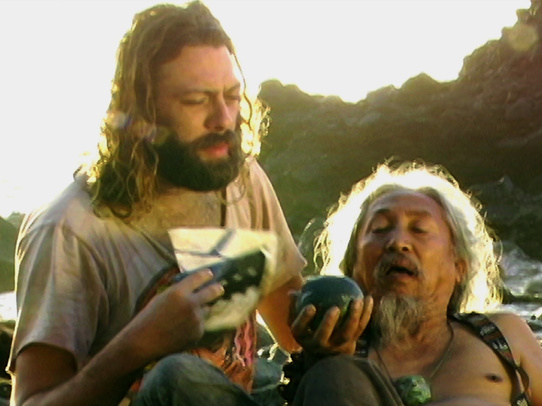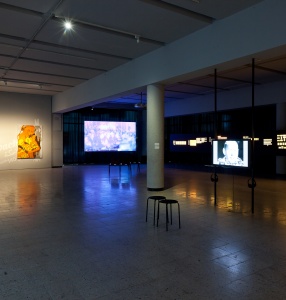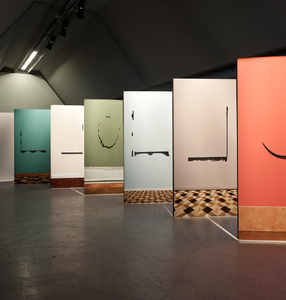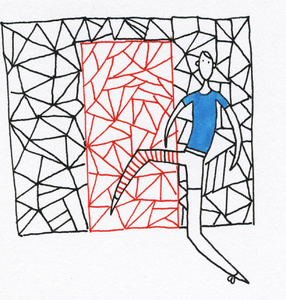Kidlat Tahimik: "Balikbayan #1" (Memories of Overdevelopment Redux III)
Movie screening
“Balikbayan” is the Tagalog term for guest worker. The protagonist in Kidlat Tahimik’s film Memories of Over-Development, who appears simultaneously as a victim and beneficiary of Europe’s colonial expansion, is also a “balikbayan”: Enrique Melaka, a slave of Ferdinand Magellan.
The Portuguese seafarer, who undertook several expeditions to Asia on commission from the Spanish crown, thereby not only paved the way for Spanish colonialism; his journeys also finally proved that the earth is round. Magellan almost became the first person to circumnavigate the globe but shortly before the end of his last journey, warriors of the tribal chief LapuLapu killed him in battle on the island of Mactan, which is part of the Philippine archipelago.
A few brief passages in the notes of Magellan’s ship’s chronicler Antonio Pigafetta make it seem possible that Magellan’s slave Enrique succeeded where his master failed: in traveling all the way around the world. The extant historical sources cannot conclusively prove the claim that Enrique was a Filipino and also the world’s first circumnavigator, but they don’t conclusively refute it, either. Kidlat Tahimik uses the resulting narrative possibilities to stage a fascinating thought experiment: what if a paradigmatic victim of early colonization accomplished a historic, pioneering achievement? Did a man purchased as a servant by a Spanish conquistador on the slave market in Malacca, who interpreted for him and had to serve him at table, play a role in history comparable to that of Marco Polo or Columbus? In the film, Enrique (played by the director himself) does not appear as the object of European exploitation, but rather as a kind of shrewd cosmopolitan from the Global South.
Kidlat Tahimik began working on his film about Enrique Melaka in 1979, but for personal reasons never completed it. Not until more than three decades later has he now been able to finish it, almost without a budget but partly thanks to new developments in media technology (some of the new footage was shot with an iPhone).



